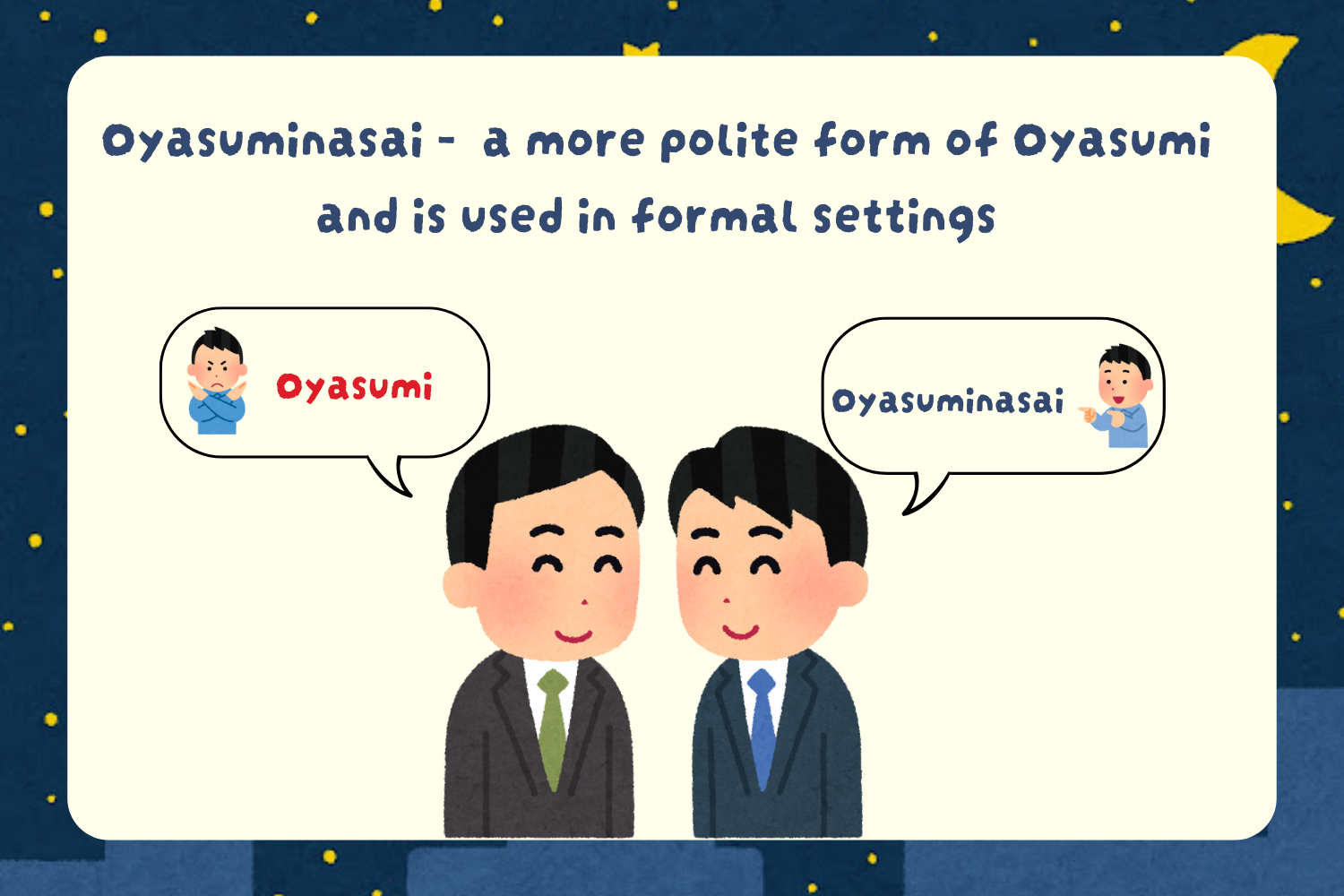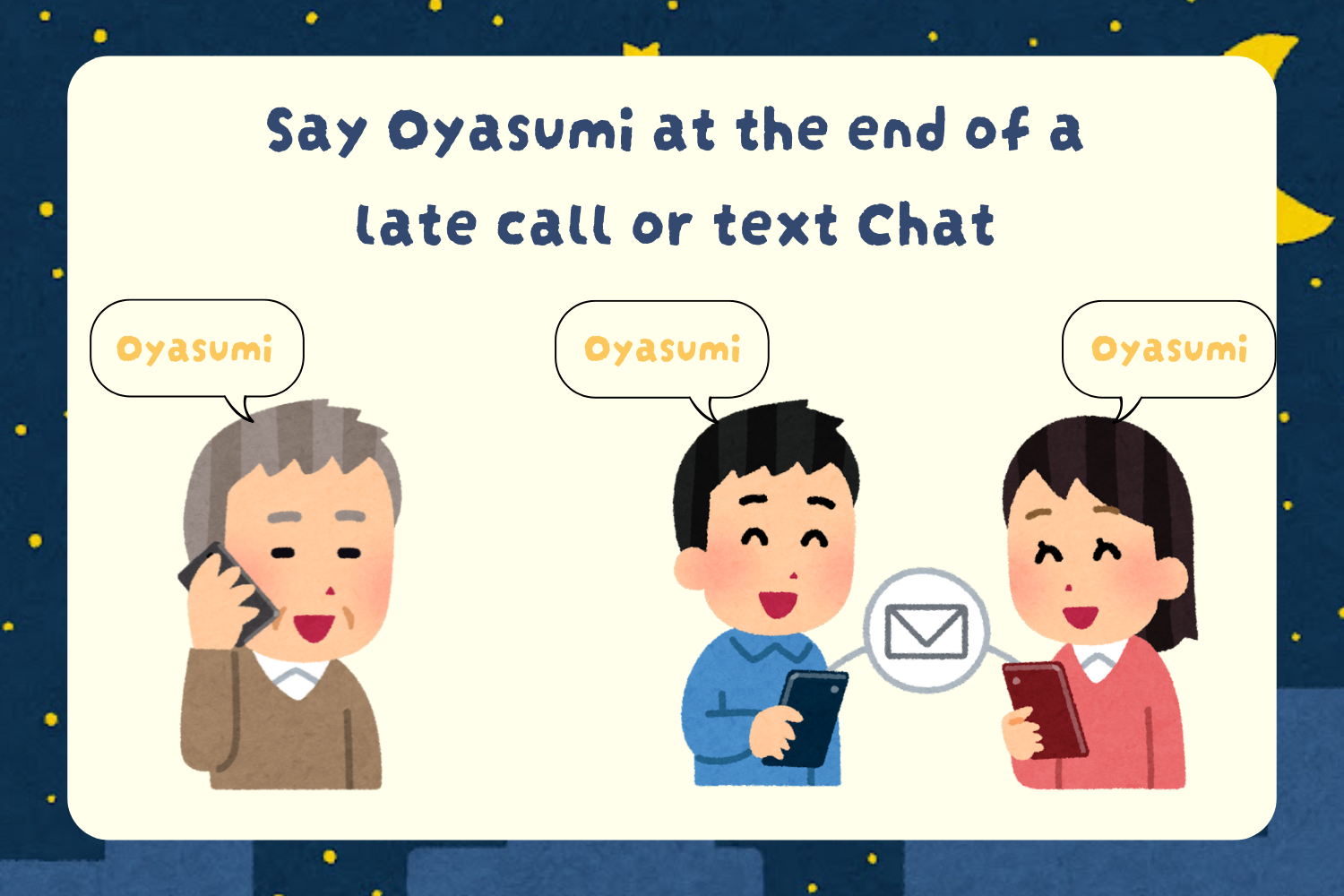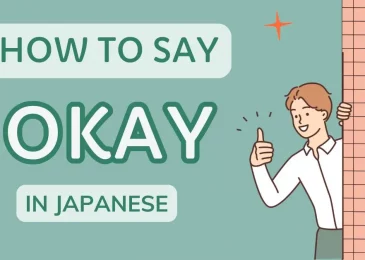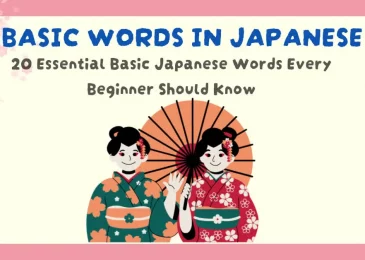If you’re learning Japanese or enjoy Japanese shows, you’ve probably heard the word “oyasumi” around bedtime. “Oyasumi” is the Japanese way of saying “Good night,” but it’s more than just a simple phrase. Understanding how to say “Good night” properly in Japanese, including the difference between “oyasumi” and “oyasuminasai,” can help you sound polite, and natural, and show respect for Japanese culture.
In this guide, we’ll explore the meaning of “oyasumi,” when to use it, its cultural significance, and related phrases about sleep and rest in Japanese. By the end, you’ll feel more confident using “oyasumi” and have a better understanding of Japanese customs.
What Does Oyasumi Mean?
The word “oyasumi” (おやすみ) is a common way to say “Good night” in Japanese. It comes from the Japanese verb yasumu (休む), which means “to rest” or “to take a break.” By adding the polite prefix “O-” at the beginning, the phrase becomes softer and more respectful, a common practice in the Japanese language to show courtesy.
When you say “oyasumi,” you’re not just saying “Good night” in the literal sense. You’re essentially wishing someone a restful or peaceful sleep, similar to saying “Sleep well” in English. It’s a warm, gentle way to close out the day with family members, friends, or loved ones.
The word “oyasumi” is often used in informal settings with family and friends, where the relationship is comfortable and casual. It carries a sense of care and closeness, making it an important phrase in Japanese family and social life.
Oyasumi vs. Oyasuminasai: What’s the Difference?
You might also hear the phrase “oyasuminasai” (おやすみなさい) as a way of saying “Good night” in Japanese. While both “oyasumi” and “oyasuminasai” translate to “Good night,” there’s a difference in politeness and formality between the two:
Oyasumi – This is the more casual form of “Good night” and is typically used with family members, close friends, or people who are younger or at the same level as you. It’s informal and friendly, perfect for comfortable situations.20 – oyasumi meaning
Oyasuminasai – This is the more formal version and is used with teachers, colleagues, supervisors, or anyone you want to show respect to. The phrase “oyasuminasai” adds a touch of politeness and shows that you are mindful of the relationship.
For example, if you’re saying good night to a sibling or friend, “oyasumi” is appropriate. However, if you’re saying good night to a teacher, boss, or someone you don’t know well, “oyasuminasai” would be more suitable. This distinction reflects the Japanese cultural emphasis on levels of politeness, depending on who you are speaking to and the context.
Why Saying Oyasumi Is Important in Japanese Culture
In Japanese culture, saying good night is more than just a formality—it’s a way to show care and respect for others. When you say “oyasumi” or “oyasuminasai” to someone, you’re not only wishing them a good night’s sleep but also showing that you value them and their well-being. This small gesture is an essential part of maintaining harmony and positive relationships in Japanese culture.
In many Japanese families, especially those with children, “oyasumi” is part of the nightly routine. Children say “oyasumi” to their parents before bed, and parents respond warmly. This simple bedtime ritual helps create a bond and reinforces family closeness. This small, routine exchange reflects Japanese values of warmth, harmony, and respect within families.
For adults, saying “oyasuminasai” in formal settings, like at work or school, helps foster a polite and considerate atmosphere. Using “oyasuminasai” instead of “oyasumi” in these settings shows respect for the social hierarchy and for the person’s position or seniority. This cultural attention to politeness and the correct level of respect is a defining aspect of the Japanese language and etiquette.
When to Say Oyasumi or Oyasuminasai
Knowing when to use “oyasumi” versus “oyasuminasai” can help you navigate different social situations more naturally and respectfully. Japanese language and culture place a strong emphasis on using the appropriate level of formality based on the relationship between speakers and the setting. Here are some examples of situations where each phrase is appropriate:
At Home
In a family setting, “oyasumi” is the go-to phrase. It’s casual, and warm, and expresses a sense of comfort and closeness. Children might say “oyasumi” to their parents, and parents often say it to their kids as a way to send them off to sleep with a gentle goodnight. Siblings, spouses, or even roommates can also use “oyasumi” with each other, making it a perfect phrase for intimate, familiar relationships. This word reinforces the sense of home as a safe and relaxed environment, where people can interact without the need for formality.
With Friends
Among friends, “oyasumi” is both friendly and informal. If you’re spending time with friends late into the evening, saying “oyasumi” as everyone heads home is a casual way to bid farewell for the night. It’s also commonly used in text messages or chat apps to wish friends a good night. Since the relationship with friends is usually informal, “oyasumi” fits the tone perfectly and adds a layer of warmth to the interaction, strengthening bonds without the weight of formality.
In a Professional Setting
When you’re in a professional or formal setting, using the more polite “oyasuminasai” shows respect for hierarchy and boundaries. In Japanese work culture, politeness and deference are crucial, especially when addressing colleagues, supervisors, or clients. For instance, if you’re working late and leaving the office, saying “oyasuminasai” to a manager or senior coworker acknowledges them respectfully. The same applies if you’re in a formal school setting, where students might say “oyasuminasai” to teachers. Using “oyasuminasai” in these contexts helps maintain professionalism and demonstrates your understanding of social etiquette in Japanese culture.
At the End of a Late Call or Text Chat
Japanese people may also say “oyasumi” or “oyasuminasai” at the end of a late phone conversation or text chat, depending on the relationship. For close friends or family, “oyasumi” is perfect as it’s casual and friendly. However, if the conversation is with a superior or someone in a formal relationship, “oyasuminasai” is more appropriate. This subtle adjustment in politeness reflects the Japanese custom of ending conversations on a positive note while keeping the appropriate tone. It’s common, for example, to text “oyasumi” to a friend at the end of a nighttime chat, or “oyasuminasai” to a colleague or superior after discussing work-related matters in the evening.
Using the right version of “oyasumi” or “oyasuminasai” demonstrates thoughtfulness, awareness, and respect. It helps you connect with people naturally and respectfully in Japanese culture, showing that you understand and appreciate the nuances of their language and social customs. This attentiveness to context also highlights your sensitivity to relationships, which is highly valued in Japan, where harmony (wa) is often the foundation of social interactions.
Related Japanese Phrases About Sleep and Rest
Besides “oyasumi” and “oyasuminasai,” other Japanese phrases are related to sleep, rest, and relaxation. Here are a few additional phrases that can enhance your understanding of Japanese language and culture:
Nemui (眠い)
This means “I’m sleepy” or “I feel sleepy.” It’s commonly used when you’re tired and ready for bed. For example, you might say “Nemui desu” to let others know you’re feeling drowsy.
Yoi yume o (良い夢を)
This translates to “Sweet dreams.” While not as commonly used as “oyasumi,” it’s a nice way to wish someone pleasant dreams, particularly among close friends or family members. You might use it to add a thoughtful gesture when saying good night.
Yukkuri yasunde (ゆっくり休んで)
This phrase means “Rest well” or “Take it easy.” It’s often used to encourage someone to relax or unwind, especially if they’ve had a long day or week. Saying “yukkuri yasunde” can be a kind way to show you care about their well-being.
These phrases offer more ways to express care and thoughtfulness, especially around bedtime or times of relaxation. Knowing how to use these phrases in the right context can help you sound more fluent and culturally aware when speaking Japanese.
One website that offers incredibly helpful Japanese vocabulary and kanji instruction at several levels, from beginner to advanced, is MochiKanji. It provides JLPT exam preparation from N5 to N2, as well as lessons on commonplace conversations like shopping and self-introductions. By optimizing review times, the “Golden Time” feature improves long-term retention.
Real-Life Examples of “Oyasumi” in Japanese Media and Culture
One way to understand how “oyasumi” and “oyasuminasai” are used is by observing Japanese media, such as anime, TV dramas, and movies. These forms of entertainment often reflect daily life in Japan and can give you natural examples of how these phrases are used:
In Anime
In slice-of-life anime, characters often say “oyasumi” to family members or friends before going to bed. Watching these scenes can help you get a feel for the tone and context of “oyasumi” in everyday situations.
In Japanese Dramas
Japanese dramas, especially family-centered ones, showcase bedtime rituals where characters say “oyasumi” as part of their nightly routine. Such scenes highlight the warmth and closeness that “oyasumi” brings to family relationships.
By observing these phrases in context, you’ll be able to hear the natural pronunciation, understand cultural nuances, and even practice how you might use “oyasumi” in your own interactions.
Conclusion
“Oyasumi” and “oyasuminasai” are more than just ways to say “Good night” in Japanese. They represent care, warmth, and respect—values that are central to Japanese culture. By learning how to use “oyasumi” and “oyasuminasai” in the appropriate context, you’re not only expanding your vocabulary but also gaining a deeper understanding of Japanese customs and social etiquette.Knowing when to use “oyasumi” versus “oyasuminasai” can help you sound more natural and respectful in conversations. As you practice, you’ll find that saying “oyasumi” or “oyasuminasai” becomes a small but meaningful way to connect with people and show thoughtfulness.








